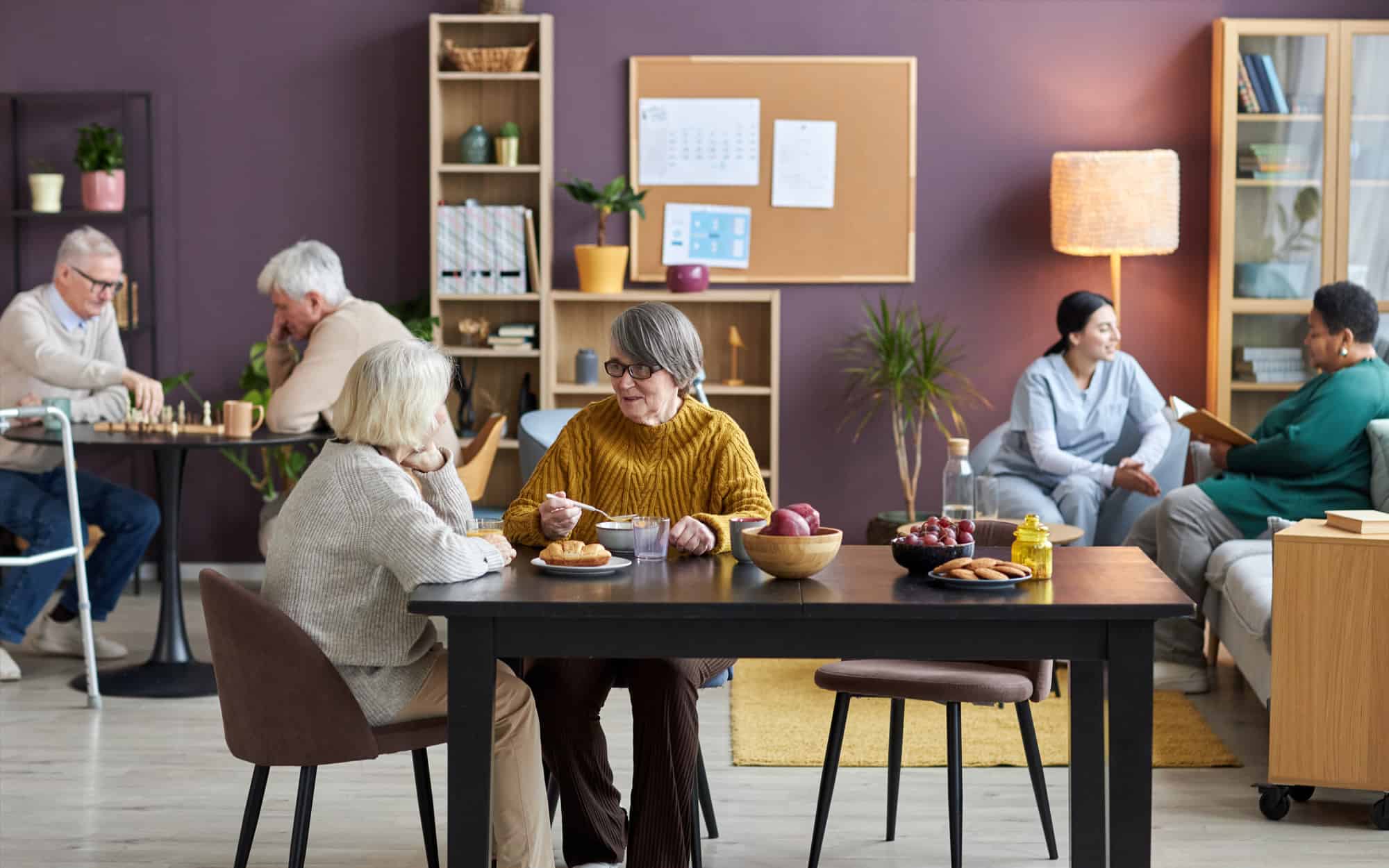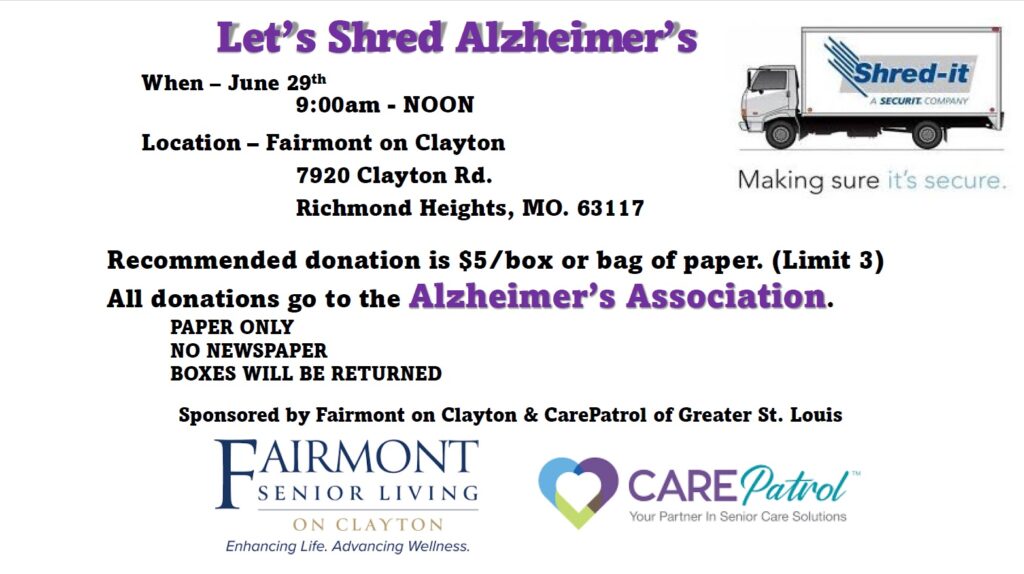Are you wondering whether it’s time for your loved one to transition to an assisted living community?
In this blog, we’ll explain the signs to look out for when deciding to transition from your loved one living on their own to an assisted living facility.
Understanding Assisted Living Communities
As people grow older, their care needs often change. Assisted living facilities fill a significant need, providing support for seniors who want to maintain a level of independence but need help with certain aspects of daily life.
Declining Physical Health
Noticeable changes in physical health, such as frequent falls, sudden weight loss, or difficulty managing personal hygiene may indicate that a senior is struggling with daily tasks. Observant family members may also notice changes in their loved ones’ mobility or strength.
Deteriorating Mental Health
Many seniors may also experience changes in their mental health. Mood swings, changes in personality, confusion and forgetfulness—these can all be signs of cognitive health concerns that can be managed in an assisted living community.
Escalating Care Needs and Daily Living Challenges
For some seniors, it’s not necessarily a health crisis that sparks the move to assisted living, but rather the cumulative effect of small challenges that add up over time. Having difficulty with daily routines such as dressing, cooking, or cleaning is a sign that a senior could benefit from a more supportive living space.
Difficulty Getting Around the House
As seniors age, their balance can become a major challenge, making them more prone to dangerous falls and accidents. If you’ve noticed bruises or scrapes on your loved one, it could be a sign that getting around the house has become risky for them and it’s time to consider transitioning to an assisted living community.
Keeping Up With Chores
We all have moments when we let the laundry pile up or leave dishes in the sink, but what if it’s becoming a regular thing for your loved one? They might be having trouble keeping up with their usual routines. Keep an eye out for changes in their household. If you notice dust accumulating or spills going uncleaned, it might be time to have a conversation. And if they were never particularly tidy to begin with, be on the lookout for more serious signs like dishes that have been sitting for weeks or unpleasant odors in their home.
Taking Medications as Prescribed
Are you worried about whether your relatives are taking their medications as prescribed? Look for out-of-date pill boxes, stockpiled prescription bottles, or early medication refill requests. These are all signs of mismanagement that can have serious consequences for their well-being. Medication mismanagement goes beyond forgetting a dose—it can lead to harmful side effects, hospitalization, and even overdose.
Eating Habits
As seniors get older, their appetites tend to change. It’s common for them to eat slightly less or focus on their favorite foods. However, if you notice significant weight loss or gain, an empty fridge, or expired pantry items, it might be time to intervene and transition to an assisted living facility.
Bathing and Hygiene Changes
It’s important to take note of any changes in their appearance, such as unbrushed hair, dirty clothes, or a lack of regular bathing, as these could be signs they’re having difficulty keeping up with proper hygiene. Remember, everyone’s routine is different, so the signs may vary.
Appliance Use
Keep an eye out for telltale signs like burners left on, trickling faucets, or refrigerator doors left ajar. These could be clear indicators that your loved one is struggling to use appliances safely.
Driving
Is your family member still driving, but you’re not sure they’re doing it safely? Look for unexplained scratches or dents on their car, flattened grass near the driveway, or broken branches. These subtle signs may indicate some trouble behind the wheel.
Benefits of Assisted Living Communities
Assisted living communities offer a wide range of benefits for seniors. From healthcare services to social activities, these facilities provide a nurturing, supportive environment that promotes seniors’ well-being and quality of life.
Increased Safety
Assisted Living provides a safety net addressing many of the many safety concerns mentioned above, such as fall risks. Falls can be a major concern for seniors, leading to serious injuries and health complications. Assisted living communities are designed with accessibility and mobility in mind. You’ll find ramps, flat thresholds, and hallway hand railings to provide the support they need to move around safely and confidently.
Routine Meals
Assisted living communities understand the importance of routine meals for both physical and mental well-being. With their expert chefs and dedicated staff, you can rest easy knowing that every mealtime will be a delightful experience that nourishes your loved ones’ body and soul. Not only will your loved one have access to a variety of mouthwatering options, but they’ll also have the chance to socialize with other residents and forge lasting friendships over a shared love for good food.
Freedom From Housekeeping and Home Repairs
In these vibrant communities, loved ones can leave the hassle of housekeeping and home repairs behind. Imagine your loved one waking up to a perfectly clean and tidy space every day. No more scrubbing floors, battling with leaky faucets, or folding clothes. At assisted living communities, your family member can say goodbye to those mundane chores and hello to a life filled with freedom and leisure.
Enhanced Social Interaction
The benefits of social interaction for seniors cannot be overstated. Assisted living communities provide a built-in community where they can engage with their peers, participate in group activities, and reduce the feeling of loneliness and isolation. Another major advantage is the chance for your loved one to make meaningful connections with the wider community. By participating in community activities and events, they can meet like-minded individuals, form new friendships, and maybe even find a bridge partner or art buddy.
Regular Access to Medical Care
Most assisted living communities offer regular access to various forms of medical care, such as medication management, physical therapy, licensed/registered nurses, and 24-hour assistance to help with escalating care needs. This regular care can greatly improve overall health and well-being.
Learn about National Assisted Living Week and different activities to host in your community to celebrate.
Key Takeaways
Are you looking for assisted living in St. Louis? Look no further than Fairmont Senior Living on Clayton. Our community offers assisted living and memory care services to meet the unique needs of each resident. We believe that meaningful engagement is the best medicine. That’s why we provide a Montessori-inspired lifestyle where residents make daily decisions regarding activities and meals, instilling a sense of purpose and meaning in their lives. Contact us today to schedule a tour.



